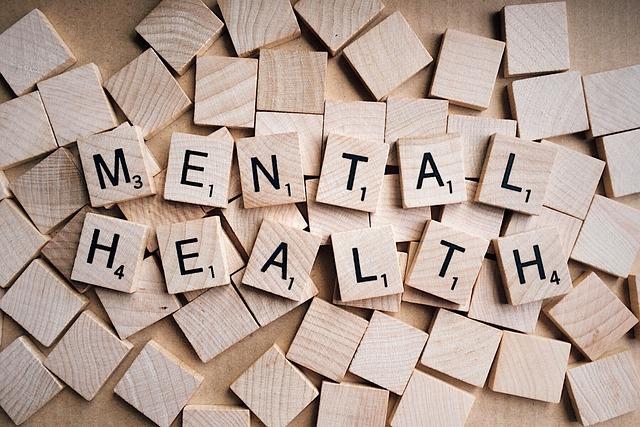In recent years, the importance of mental health care has increasingly gained recognition, extending beyond adults to encompass children and adolescents. Amidst this growing awareness, a pivotal question emerges: Is mental health therapy necessary for children experiencing mild anxiety? As the prevalence of anxiety disorders in young populations rises, parents, educators, and healthcare professionals are tasked with discerning the appropriate level of intervention. This article delves into the nuances of mild anxiety in children, evaluating the potential benefits and drawbacks of therapeutic intervention. By examining current research, expert opinions, and case studies, we aim to provide a comprehensive analysis that informs decisions regarding the necessity and efficacy of therapy for this demographic. Through a careful exploration of the intersection between childhood development and mental health care, we seek to illuminate whether early therapeutic engagement is essential for fostering resilience and well-being in children with mild anxiety.
Understanding Mild Anxiety in Children Exploring the Role of Therapy
When addressing mild anxiety in children, it’s crucial to understand the potential benefits of therapy. Therapy can provide a safe space for children to express their feelings and learn coping strategies that can be used throughout their lives. Cognitive Behavioral Therapy (CBT), for example, is often effective in helping children reframe anxious thoughts and develop practical skills to manage anxiety.
- Skill Development: Children can learn techniques such as deep breathing and mindfulness to help regulate their emotions.
- Emotional Awareness: Therapy encourages children to recognize and articulate their emotions, fostering better emotional intelligence.
- Supportive Environment: A therapist can provide an unbiased, supportive environment where children feel heard and understood.
While some may question the necessity of therapy for mild anxiety, the proactive approach can prevent more severe issues in the future. It’s about equipping children with the tools they need to navigate their emotions confidently and healthily.

Evaluating the Benefits of Early Intervention for Mild Anxiety
Addressing mild anxiety in children through early intervention can offer numerous benefits, fostering a supportive environment that enhances emotional resilience. Therapeutic interventions at an early stage can help children develop essential coping skills, allowing them to manage anxiety effectively as they grow. This proactive approach not only mitigates the progression of anxiety symptoms but also cultivates a sense of empowerment and self-awareness.
Consider the following advantages of early intervention:
- Improved Emotional Regulation: Children learn to identify and express their emotions constructively.
- Enhanced Social Skills: Early therapy can facilitate better communication and interpersonal relationships.
- Increased Academic Performance: Reduced anxiety levels can lead to better focus and academic success.
- Long-term Well-being: Building a foundation for mental health can have lasting positive effects throughout adulthood.
Therapeutic Approaches Tailored for Young Minds
Addressing mental health in children, especially those experiencing mild anxiety, requires a nuanced approach that respects their unique developmental stages. Therapeutic strategies tailored for young minds often incorporate playful and imaginative elements to engage children in a manner that resonates with their natural modes of expression. By focusing on these methods, therapists can create a safe space where children feel comfortable exploring their emotions and thoughts. Some effective approaches include:
- Play Therapy: Utilizing toys and games as tools to help children express their feelings and navigate their anxieties.
- Art Therapy: Encouraging creativity through drawing or painting to provide insights into a child’s emotional state.
- Mindfulness Exercises: Teaching simple breathing techniques and mindfulness practices to help children manage anxiety in a calm and focused manner.
These strategies are designed not only to alleviate anxiety but also to empower children with coping skills that can be used throughout their lives. By implementing such tailored therapeutic approaches, we acknowledge the distinct needs of young minds and offer them the support they need to thrive emotionally and mentally.

Expert Recommendations for Supporting Anxious Children
When it comes to nurturing the emotional well-being of children experiencing mild anxiety, a blend of professional guidance and supportive strategies can be invaluable. Experts suggest several approaches to help these young individuals manage their feelings effectively. Incorporating mindfulness exercises into daily routines can be beneficial, as they promote self-awareness and relaxation. Additionally, encouraging children to engage in physical activities not only boosts their mood but also reduces stress levels.
- Open Communication: Create a safe space for children to express their feelings without judgment.
- Structured Routines: Establishing consistent daily schedules can provide a sense of security and predictability.
- Positive Reinforcement: Recognize and praise efforts and progress, no matter how small.
While professional therapy might not always be necessary for mild anxiety, consulting a mental health professional can offer valuable insights and tools. These professionals can guide parents in adopting tailored strategies that align with the child’s unique needs, ensuring that they feel supported and understood throughout their journey.



